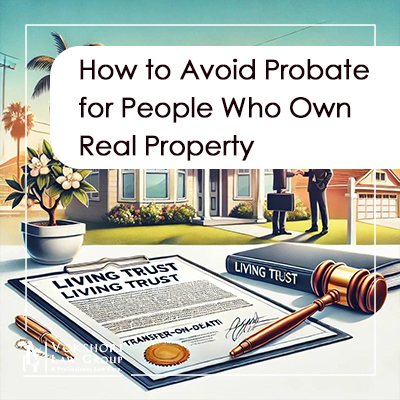
Avoiding probate costs, which typically range between 4% and 7% of your California estate’s value, should be a top priority when creating an estate plan. A California real estate attorney can help streamline this process, ensuring smoother and less expensive estate transfers. Below are some key strategies that can help avoid probate and protect your assets.
Use Transfer-on-Death Deeds
Transfer-on-Death (TOD) deeds are one of the simplest ways to transfer real property to a beneficiary without probate. These deeds allow property to automatically pass to a named beneficiary upon the owner’s death. California law recognizes TOD deeds, but they must meet specific requirements to be valid:
- The deed must be signed, notarized, and recorded with the county recorder’s office before the owner’s death.
- TOD deeds are revocable during the
Posted In:









